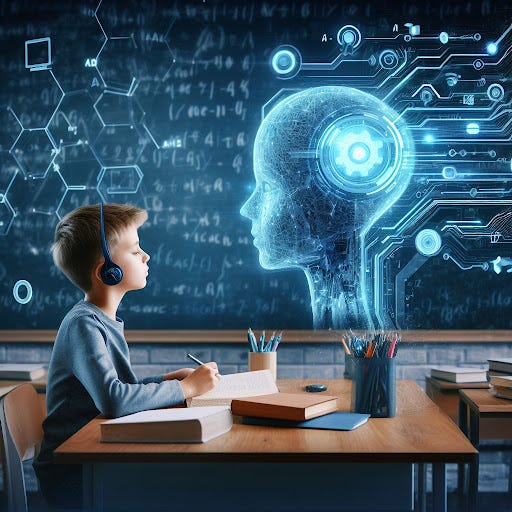
Revolutionizing Learning: The Advancements of AI in Education
Artificial Intelligence (AI) is reshaping the educational landscape, offering innovative solutions to enhance the learning experience. This article explores the significant advancements of AI in education, from personalized learning to intelligent assessment systems, and the positive impact on both students and educators.
1. Personalized Learning Journeys
AI in education facilitates personalized learning experiences tailored to the individual needs and pace of each student. Machine learning algorithms analyze students’ progress, learning styles, and preferences to provide adaptive content, ensuring that learners receive targeted materials and support to maximize their understanding and retention.
2. Intelligent Tutoring Systems
Intelligent Tutoring Systems powered by AI offer real-time, personalized assistance to students. These systems adapt to the learner’s progress, identifying areas of struggle and providing additional guidance and practice in specific topics. The result is a more individualized and effective approach to learning, fostering a deeper understanding of subjects.
3. Gamification and Interactive Learning
AI brings gamification and interactive elements into educational platforms, making learning more engaging and enjoyable. Gamified experiences leverage AI to create dynamic challenges, quizzes, and simulations that captivate students’ attention and motivate them to actively participate in the learning process, ultimately enhancing comprehension and retention.
4. Automated Grading and Feedback
AI-driven automated grading systems relieve educators of the time-consuming task of grading assignments manually. These systems can assess a variety of responses, including essays and complex problem-solving, providing immediate feedback to students. This not only speeds up the assessment process but also offers constructive insights to help students improve.
5. Adaptive Assessments for Mastery Learning
Traditional assessments often provide a one-size-fits-all evaluation, but AI introduces adaptive assessments. These assessments dynamically adjust difficulty based on students’ responses, ensuring that learners are appropriately challenged. Adaptive assessments support mastery learning, allowing students to progress at their own pace and demonstrating proficiency before moving to the next level.
6. Virtual Classrooms and Remote Learning Support
Especially relevant in the context of remote learning, AI contributes to the development of virtual classrooms. AI-powered platforms facilitate seamless communication, collaboration, and engagement among students and educators in virtual environments. This technology enhances the effectiveness of remote learning experiences.
7. Natural Language Processing for Language Learning
AI’s natural language processing capabilities have transformed language learning. Language learning apps and platforms utilize AI to assess pronunciation, offer language exercises tailored to individual needs, and provide conversational interactions. This personalized approach significantly accelerates language acquisition and proficiency.
8. Predictive Analytics for Student Success
AI employs predictive analytics to identify students at risk of falling behind or facing challenges. By analyzing various factors such as attendance, engagement, and performance data, AI systems can alert educators to intervene early and provide targeted support, ultimately increasing student retention and success rates.
9. Data-Driven Decision-Making in Education
The integration of AI enables data-driven decision-making in educational institutions. AI systems analyze large datasets to identify trends, patterns, and areas for improvement. Educators and administrators can make informed decisions based on this data, leading to more effective policies, resource allocation, and curriculum development.
10. Ethical Considerations and Inclusive Learning
As AI takes center stage in education, ethical considerations become paramount. The design and implementation of AI systems should prioritize inclusivity, accessibility, and fairness to ensure that all students, regardless of background or learning style, benefit from these advancements. Ethical AI practices in education contribute to a more equitable and diverse learning environment.
Exploring AI’s Impact: Education Advancements
For those interested in delving deeper into the impact of AI in education, consider exploring AI in Education Advancements. This comprehensive resource offers insights into the latest technologies, trends, and applications of AI in the educational sphere. As we navigate the evolving landscape of education, AI advancements hold the potential to transform learning into a more personalized, engaging, and accessible experience for all.
